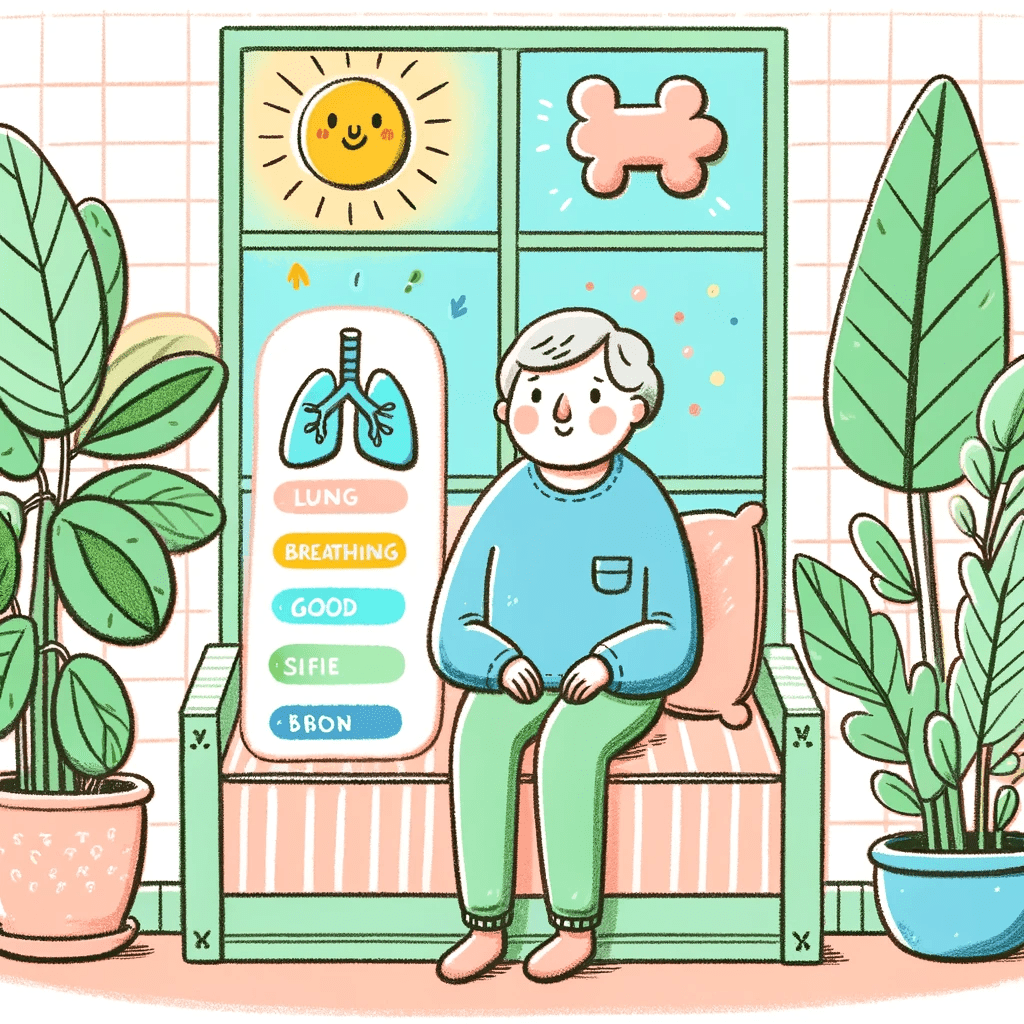Breathing Easy, Standing Strong
Every breath we take is a reminder of the delicate balance between our health and the environment we live in. For senior citizens, this balance is even more crucial, as both indoor air quality (IAQ) and bone health play pivotal roles in their well-being. Surprisingly, these two seemingly unrelated aspects are interconnected.
Indoor Air Quality: More than Just Freshness
We often perceive indoor air quality in terms of comfort—whether it’s too humid, too dry, or just right. However, beyond comfort, the air we breathe indoors can have significant implications for our health. Pollutants, allergens, and other airborne particles can influence various health aspects, one of which, astonishingly, is bone health.
The Surprising Link: How IAQ Influences Bone Health
While bones might seem sturdy and unyielding, they’re dynamic and affected by numerous factors, including nutrition, physical activity, and even the air we breathe. Recent studies suggest a correlation between certain indoor pollutants and decreased bone density. This discovery emphasizes the significance of clean indoor air, especially for older people who are more susceptible to bone-related ailments like osteoporosis.
Notable Pollutants Affecting Older People’s Bone Health
- Tobacco Smoke: Even second-hand smoke has been linked to reduced bone density. Given its myriad of other health risks, ensuring a smoke-free environment is essential.
- Volatile Organic Compounds (VOCs): Commonly emitted by certain paints, solvents, and even some furnishings, VOCs have potential implications for bone health. Seniors, who might spend more time indoors, can be particularly vulnerable to prolonged exposure.
Steps to Improve Indoor Air Quality for Older Citizens
Ensuring optimal IAQ isn’t just about luxury; it’s about safeguarding health. Here are some actionable steps:
- Ventilation: Regularly airing out living spaces can significantly reduce indoor pollutants.
- Houseplants: Some indoor plants can naturally purify the air, making it fresher and potentially healthier.
- Air Purifiers: Especially those equipped with HEPA filters, can help trap and remove many indoor air pollutants.
- Avoiding VOC-emitting Products: Opt for low-VOC or VOC-free paints and furnishings.
The Broader Health Picture: Other Impacts of IAQ on Seniors
While our focus is primarily on bone health, it’s worth noting that IAQ affects multiple facets of senior health. From respiratory issues to allergies and even cognitive health, the quality of indoor air plays a profound role. Therefore, optimizing IAQ is a holistic approach to senior care, ensuring both strong bones and overall well-being.
Making Senior Living Spaces Breathable and Beneficial
Creating a senior-friendly environment goes beyond ergonomic furniture and safety measures. It’s about curating a space where every breath contributes to their health. Whether it’s opting for organic cleaning agents, ensuring adequate ventilation, or investing in air purifiers, these steps collectively ensure that the air inside homes reinforces the health of its inhabitants.
A Foundation of Clean Air for Stronger Bones
In the golden years of life, every aspect of our environment can either support or hinder health. With the newfound knowledge linking IAQ to bone health, it’s clear that ensuring clean indoor air is not just about breathing easy but also about standing strong. After all, our bones are the framework of our body, and just like any structure, they’re best supported with a foundation of purity and care.



